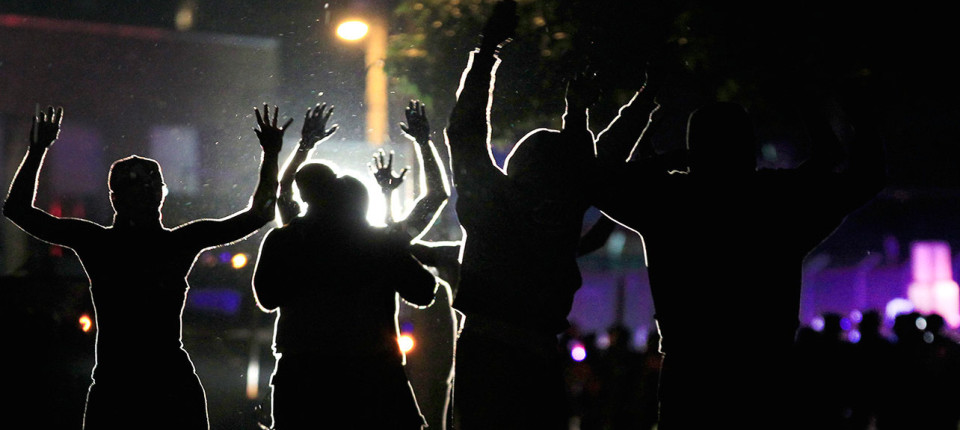I have spent a considerable amount of time in Johannesburg, South Africa, where my mother’s family lives, and once, years ago, I saw something that would stick with me forever after. While driving on the N1, a well-traveled and dangerous highway, I saw a dead body, mangled by cars, lying in the street. It looked to be cut in three pieces, possibly where tires had crossed it, and even though it was illuminated by emergency lights, it was so badly disfigured that I could barely discern that it was male. First responders had already arrived—they had cordoned off the area and were directing traffic around it. Clearly, they had been there for a while, but still it lay uncovered, and they stood around, staring. My family, in the car with me, wasn’t shocked. As we drove past, my aunt said she had encountered a similar scene just days ago. At the time, I thought the moment crystalized how brutally death was treated there in comparison to the United States. I thought, surely, the same scene would never be repeated in America: No one would leave a dead body in the street, naked to the prying eyes of strangers, for hours.
Then, a year ago, Michael Brown was murdered in Ferguson, and in the proceeding year, a procession of black bodies were beaten, shot, and strangled before our eyes on film. This incontrovertible proof has forced Americans to realize that these atrocities happen regularly under their noses, they are just hidden from public view. Police brutality has not increased this year, it has just been more visible.
In his 1944 review of An American Dilemma, Gunnar Myrdal’s groundbreaking study of US race relations, Ralph Ellison wrote: “In our society it is not unusual for a Negro to experience a sensation that he does not exist in the real world at all. He seems, rather, to exist in the nightmarish fantasy of the white American mind as a phantom that the white mind seeks unceasingly, by means both crude and subtle, to lay to rest.”
Apartheid South Africa, in fact, offers a rubric for understanding the stratification of race in the US (RFK famously drew this parallel in his 1966 visit to the University of Cape Town). To be Black in America is to live in a cruel and dangerous parallel existence, one mostly invisible to those of other races.
This moment is one that could only have happened now, with the proliferation of cell phone cameras and social media. It was fitting that, for comment, I would seek the voices of the younger generation, those most capable of understanding the current moment. The following authors are some of the sharpest I have encountered, and they are all beginning to make their mark on the world. Some you may already know, and others you will soon. Their talent and promise is an answer to the assertion, made by guns and handcuffs, that black lives are worth nothing.
Request: Permission to Occupy Your Body, Roger Reeves
From Within the Dark-Blood Depths, Rachel Eliza Griffiths
Other Outrages, Other Deaths, Rion Amilcar Scott
A Brief History of the Present, Morgan Parker
Rachel. Trayvon. Michael. Dying. Laughing. A. Fiction., Kiese Laymon
How Do You Write From a Country That Doesn’t Exist, Danielle Evans
To not write another word about who the cops keep killing, Khadijah Queen
Am I a Reliable Witness to My Own Life?, Sarah Labrie
Keyword Search: “Ferguson” and “Mike Brown”, Angela Flournoy
Slow Dance, With Bullet, Hope Wabuke
Breath of Fresh Air, Yahdon Israel
A Very Brief History of Police Killings in the U.S., Metta Sáma


